'It's killing us': Inside the town 'ignoring' rape victims
There’s not much that scares Susie. As an Alaska Native woman, she thrives amid sub-zero winters in her village near the Arctic Circle.
But Susie is afraid to return to Nome. The man who raped her, she says, is still there.
“Just scares me, and I’m scared to see him, and thinking what he might do,” she says.
“But I’m not scared in the village, or any other villages, because I know he won’t come.
“But Nome is like ... I don’t really like to overnight in Nome.”
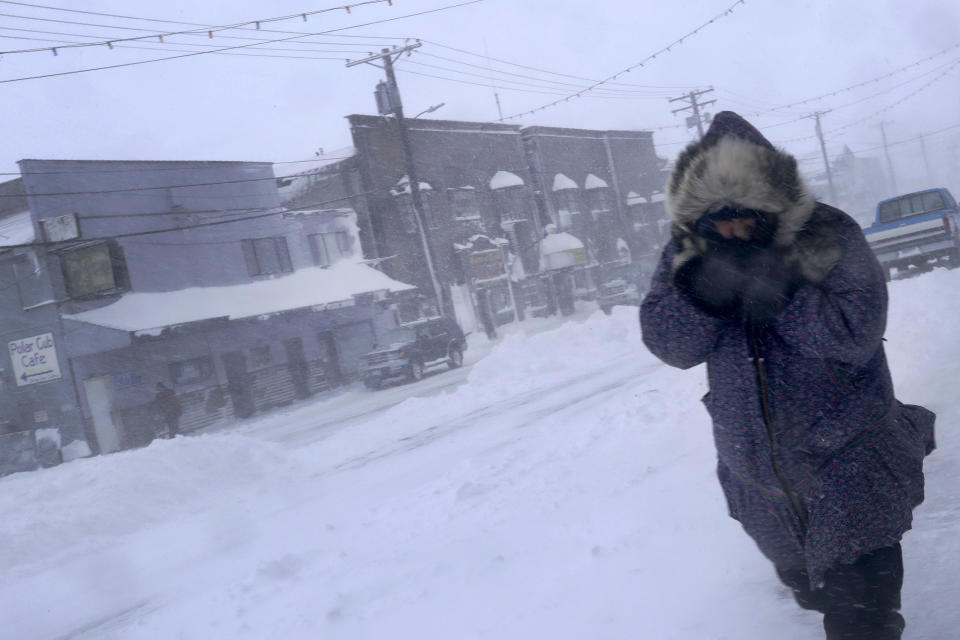
He is a free man — no charges were filed against him. Susie reported to Nome police that she had been assaulted and went with the investigating officer to the hospital, where a forensic nurse was prepared to perform a sexual assault exam.
But the officer told the nurse not to bother, according to a hospital record that Susie released to The Associated Press.
“The officer stated that he was going to cancel the exam because he had already talked to the suspect and the man admitted that he ‘had sex’ with the patient but that it was consensual,” the nurse wrote in the report.
“Therefore the officer did not see a need for an exam.”
Police department fails rape survivors
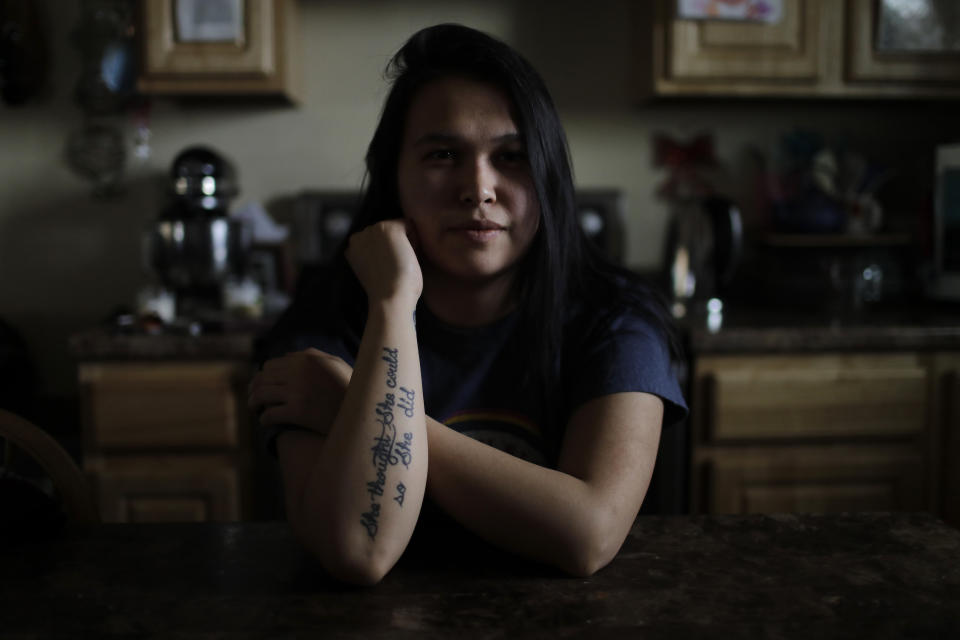
Susie’s story isn’t uncommon in Nome, a city of fewer than 4000 full-time residents that serves as a regional hub for dozens of smaller villages across western Alaska’s Bering Strait region.
Rape survivors and their supporters told AP that the city’s police department has often failed to investigate sexual assaults or keep survivors informed about what, if anything, is happening with their cases.
Survivors and advocates contend that Nome police pay less attention and investigate less aggressively when sexual assaults are reported by Alaska Native women.
More than half of Nome’s population is Alaska Native, largely of Yupik heritage or — like Susie — of Inupiaq heritage.
All of its police department’s sworn officers are non-Native.
In 2013 — the year Susie reported she had been sexually assaulted — Nome police received 33 calls about sexual assaults against adults.
That year, the department made one arrest on a sexual assault charge. In all, Nome police records show, the department fielded 372 calls about sexual assaults against adults from 2008 through 2017.

During that span, 30 cases — 8 per cent of the total — led to arrests on sexual assault charges.
US police agencies in big cities, suburbs and small towns have been accused of failing to test DNA evidence gathered in thousands of rape cases ; dismissing rape reports because officers believed that victims did not “fight back” hard enough ; and showing less concern about rape complaints from African Americans, Native Americans and other less powerful groups.
In Nome, local officials defend the police department, saying low staffing levels have made it difficult to respond to calls for help of all kinds.
John Earthman, district attorney for Nome and surrounding areas, said Nome police officers “are very hard-working people that live in this community”.
“They want to make their community safer. Unfortunately out here a lot of times, it is a triage situation. It’s very hard. Just having a rural police department in rural Alaska is very hard.”
Susie’s struggle during sexual assault
On the night Susie says everything changed for her, she had come from her village farther north to visit a cousin in Nome.
At a bar, she encountered a man she knew from another village who lived in Nome.
According to the notes compiled by Barbara Cromwell, the lead forensic nurse at Nome’s Norton Sound Regional Hospital, Susie said the man bought her three shots of liquor — “I was just feeling a little bit ‘somewhere,’ but I wasn’t drunk.”
She recalled the man saying, “I want to have sex with you”.
She said she told him “I’m not like that” — she had children and a boyfriend.
But he persisted, she said, following Susie and her cousin back to her cousin’s apartment.
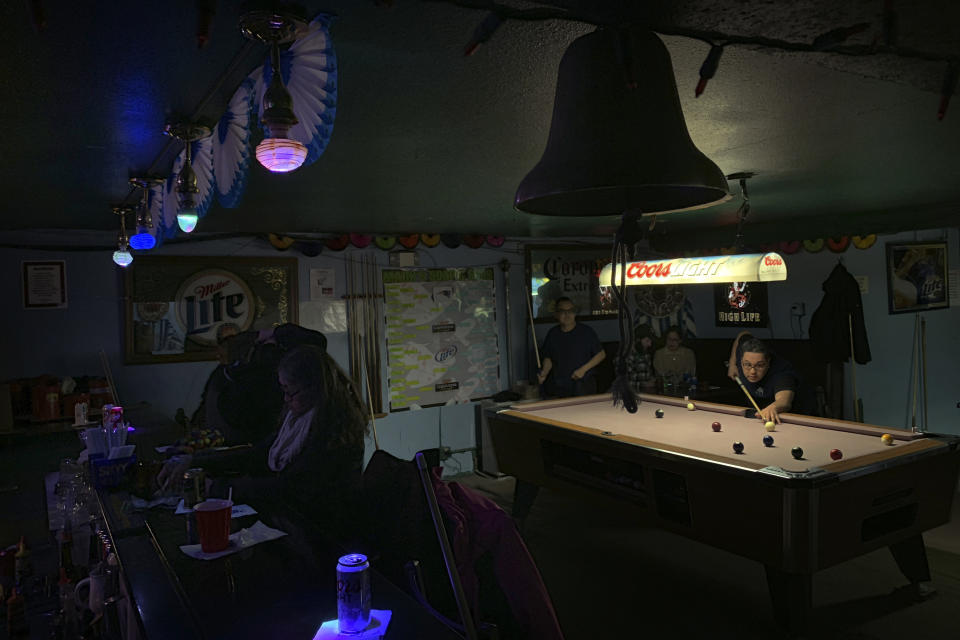
He refused to leave, and finally pushed Susie into a bedroom and locked the door and raped her, pressing his forearm into her neck and chest when she tried to struggle, she told the nurse.
At the hospital, Cromwell decided to conduct a full sexual assault exam, even though her notes indicate that Nicholas Harvey, the Nome police officer investigating the case, told her to cancel it.
She wrote that she found evidence that could be consistent with Susie’s account, including bruises on her arms and legs.
The man had been convicted of physical assault three times before Susie reported him to police, according to court records.
Susie says she waited three days in Nome to hear back from police about her case, but heard nothing.
She flew back to her village and continued calling police and prosecutors in Nome. Still, she says, no one could tell her what had happened with her case.
“So I was like ... must not be important enough,” Susie says.
“Us Natives must not be important enough.”
Police officer’s confession
Under Cromwell’s direction, Norton Sound Regional’s forensic nursing program — established in 2010 to provide specialised care to victims of sexual assault and other violence — has grown.
Survivors can see a trained nurse in a private area of the hospital, have an advocate present, and decide for themselves whether to involve police and undergo evidence collection.
They can remain anonymous if they choose. If patients decide to report a crime, police are supposed to interview them in the nurse’s private office, with an advocate present if the patient wishes.
The number of evidence kits Cromwell’s team collected more than tripled, from around 55 the first year, to over 180 by 2017.

But as more and more people went to the hospital for rape exams, Nome police officers struggled to master investigative techniques, Cromwell told the AP.
“By the time the rest of our team could kind of bring them up to speed, they’d be gone,” she said.
“And then the victims kind of drift away because nothing’s being done.”
Cromwell said she was shocked when a Nome police officer casually let it slip in 2017 that police were regularly “weeding out” some sexual assaults on the spot, without bringing women to the hospital for an exam and an interview with someone trained in dealing with traumatised victims.
“I had no idea that they were sometimes deciding in the field that it was not a legitimate report,” Cromwell said.
“How can you substantiate (an assault) if you don’t bring them to a quiet place to interview them with support, with an advocate, and have a medical person evaluate them? Because it might sound like nothing, but that’s because it’s very difficult for the women to tell their story. You really have to give them the opportunity to do that.”
‘He said, she said kind of thing’
Harvey, the officer who had handled Susie’s case, declined to answer questions for this story. Harvey, who left the police department earlier this year and is now a deputy clerk at the Nome courthouse, started as a dispatcher for the department in 2008 and eventually rose to lieutenant; for much of the past decade, he was one of the officers responsible for investigating sexual assault cases in Nome.
One former employee of the department, Tomas Paniaataq, recalled accompanying Harvey on a sexual assault call; before Harvey even started the car, Paniaataq told the AP, the investigator told him it was a “he said, she said” case that would never hold in a court, so there was no point in taking a report.
Paniaataq, who is Inupiaq, worked from 2016 to 2018 for the department as a community services officer, a civilian employee who assisted sworn officers.
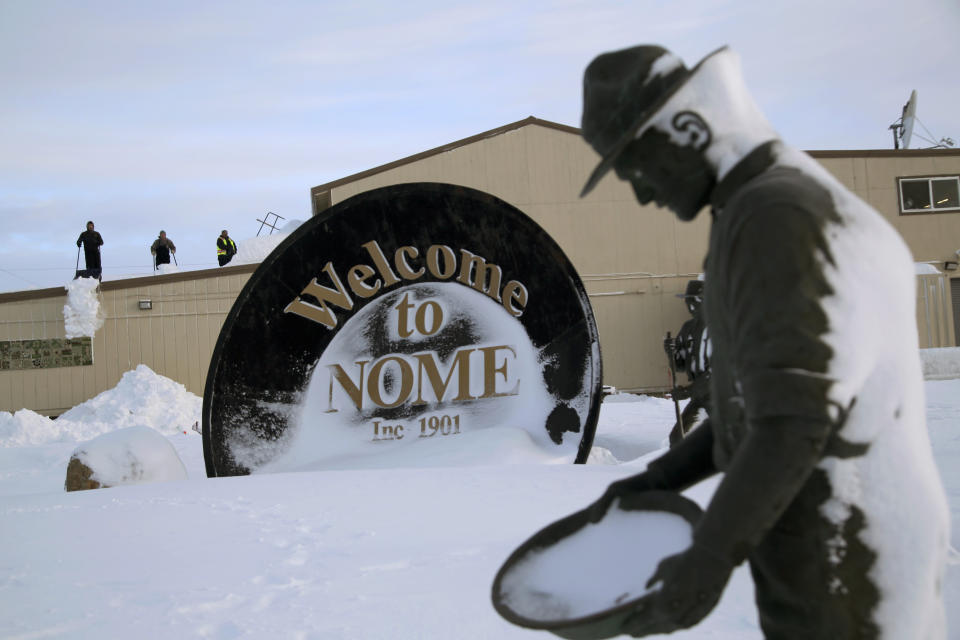
“Honestly, if you look back at a lot of the sexual assaults within the police department that that particular officer did, (it) was always like a no-report, ‘he said-she said’ kind of thing,” Paniaataq said.
Preston Stotts was a 15-year veteran when he left the department two years ago — in large part, he said, because of frustration with Harvey and other officers who were “failing to go on felony calls, not going on sexual assault calls”.
As a supervisor, Stotts said he wrote numerous complaints, but the department did nothing about “blatant disregard for policing.”
‘Just tell her I’m working on it’
Clarice “Bun” Hardy, a 911 dispatcher for Nome police from 2015 to 2018, had always thought of Harvey as a friend.
Harvey was “the one cop I thought of as family, the one who I trusted with everything,” she said.
She turned to him in March 2017 after she awoke one morning, sore and bruised, with no memory of getting home the night before.
Friends called her, she said, telling her about photos and a video posted on Snapchat that seemed to show a man having intercourse with her while she was unconscious.
She told Harvey she believed she’d been drugged at a local bar and then sexually assaulted. She said she gave him a list of witnesses, she said, but they later told her that no one from the police department had contacted them.
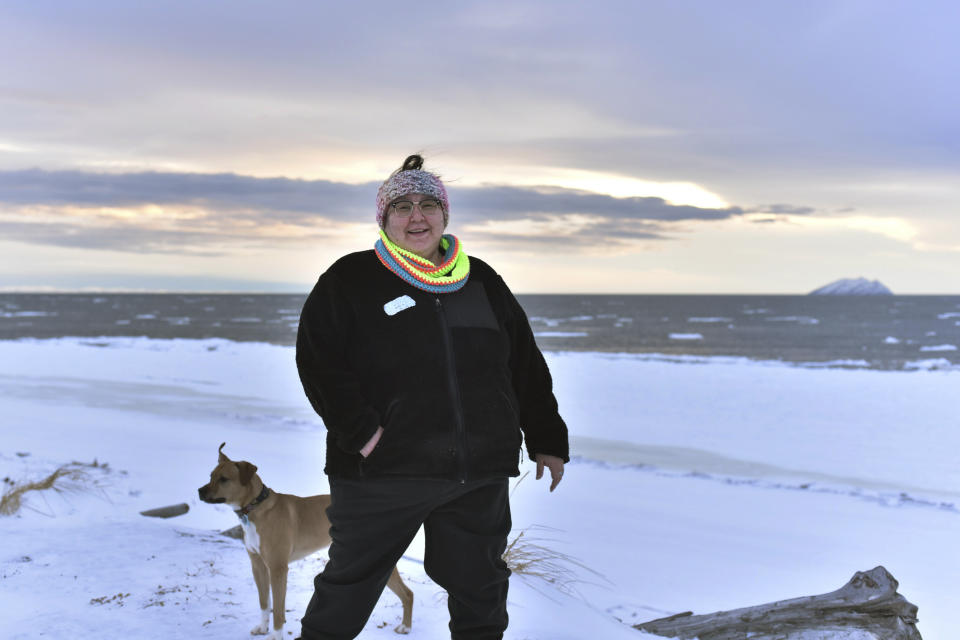
Meanwhile, during her shifts as dispatcher, she was answering repeated calls from two women who had reported being assaulted. Each time she told Harvey one of the women was on the line to ask about the status of her case, Hardy said, he said: “Just tell her I’m working on it.”
It was the same thing that he told her every time she asked about her own case, Hardy said.
“That’s when it sparked,” she said, her voice wavering.
“Oh my God, he’s not doing anything.”
In March 2018, she said, she told the police chief at the time, John Papasodora, what had happened with her case, and he seemed surprised. He couldn’t locate a report or even a case number in the department’s computer system, she said, and asked her to rewrite her complaint, promising to deliver it to state troopers.
Months later, she said, she discovered her complaint still sitting on the chief’s desk. Hardy contacted the city’s human resources officer, the municipal employees union and Alaska’s Office of Victims’ Rights.
Turning point for rape survivors
She eventually went on unpaid leave and then was terminated from her job because, city officials wrote her, she hadn’t returned to work after her leave expired.
“I went from being a very active person, going to every community event, helping out, volunteering, to being scared to be in public in Nome,” she told the AP.
“My blinds and my apartment were closed, my doors were locked.”
Papasodora, who stepped down as Nome police chief in September 2018, did not respond to email and phone messages seeking comment for this story.
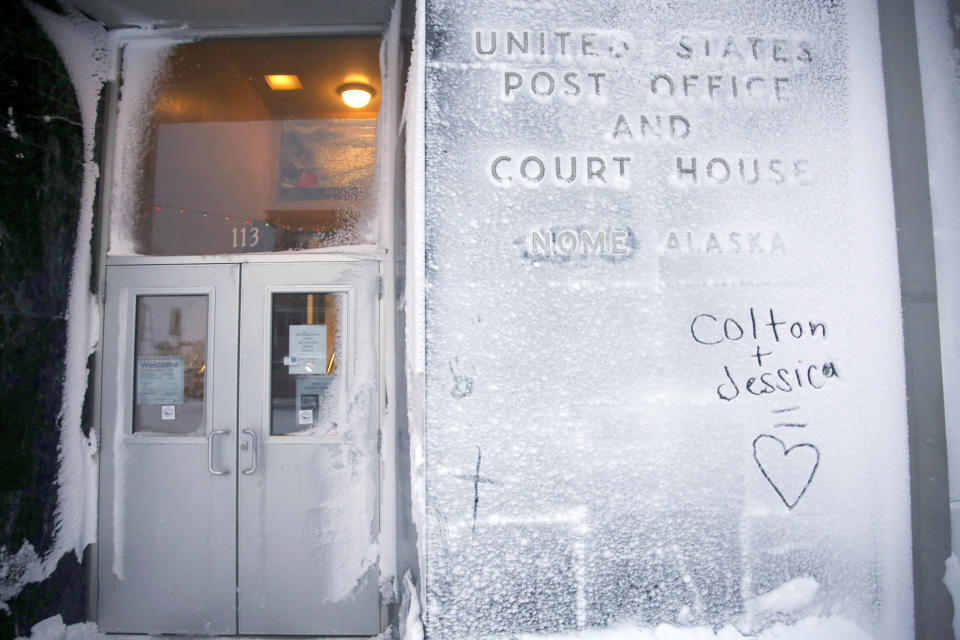
Things began to change in August 2018 after Hardy’s sister Josie talked her into going to a community forum on public safety that the survivors group had organised.
Around 30 people assembled, and they went around in a circle introducing themselves, Hardy recalled.
“I said, ‘Hi, my name is Clarice Hardy. I go by ‘Bun.’ I’m a dispatcher for the Nome Police Department and I’m here because I reported that I was drugged and raped, and my case didn’t go anywhere,” she said.
Soon after, Hardy gave an interview to the Anchorage Daily News, which ran a story in September 2018 under the headline: “911 dispatcher: I was raped and Nome police colleagues ignored the case.”
Her public recounting of her experience in the state’s largest newspaper was a turning point: She was a former police department insider and she and her family were well-known in Nome.
‘It’s killing us’
Not long before Bun Hardy went public, Deidre Levi, a high school basketball coach from St. Michael, a village on the other side of Norton Sound inlet, reported a sexual assault to Nome police.
At the hospital, Levi, 21 at the time, was so distraught she needed to be sedated before undergoing a rape exam, according to medical records she released to the AP. The forensic report showed deep purple bruises around her neck “consistent with manual strangulation”.
Harvey interviewed her at the hospital. Friends who stayed with her during the interview repeatedly asked the officer what the next steps were.

Levi said Harvey told them that the only thing that could be done was to get a court order allowing her to record a phone conversation with the man she said had raped her — in the hope he might say something incriminating.
Levi’s mother, Priscilla Washington, flew to Nome and went to the police station with an advocate from the local women’s shelter.
“I went to Harvey and asked him what’s going on, and he said: ‘It’s just accusations right now,’” Washington recalled.
“I asked if I could give him information, witnesses, anything. I asked: ‘Why isn’t he arrested yet with all that she went through?’”
Washington said she called the police department a week later, then a week after that, about getting approval to do the recording.
“They said they’d let me know,” Washington said.
“And they never called back.”
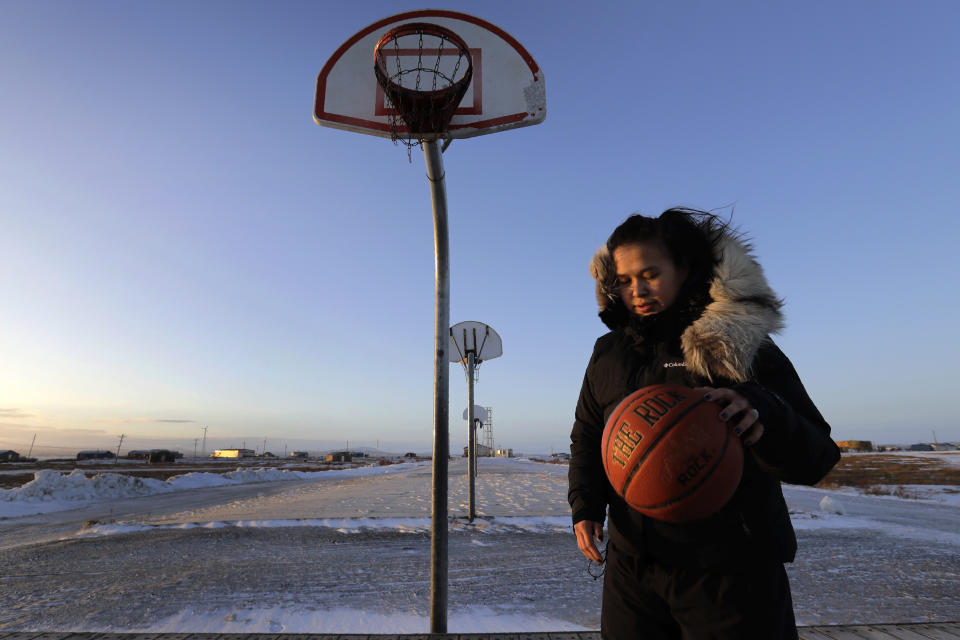
It was soon after that the Anchorage Daily News story about Hardy went live. Levi read the story with a shock of recognition. She wasn’t alone.
After another three weeks passed without communication from police about her case, she said, she went online and wrote a long Facebook post about her experiences with Nome police.
The post went viral and the newspaper followed with a story on October 4 headlined: “A second woman comes forward to say she was raped in Nome without consequence.”
That same day, during an Indigenous Peoples’ Day celebration, Alaska Native author and playwright Vera Starbard gave a speech urging law enforcement authorities across the state to do their jobs and work to break through denial about sexual abuse of Alaska Native girls and women.
“We’ve seen that our sisters in Nome reported their sexual abuse, and were ignored,” Starbard said.
“We’ve heard it said over and over on social media, in the news, in the comments — that we aren’t to be believed, or it was our fault anyways, or that we deserve what we get ... It’s crushing us. It’s killing us.”
Signs of change
In Nome, as Hardy and Levi’s stories drew statewide publicity and stoked community anger, signs of change emerged.
The city hired a new police chief, Robert Estes, who announced that his department was performing an internal audit of over 460 old sexual assault cases.
The City Council approved the hiring of the police department’s first victims advocate and passed an ordinance to create a civilian oversight committee to monitor police conduct.
But change isn’t a simple or swift process.
Lisa Navraq Ellanna, an Inupiaq member of the survivors advocacy group, says the group wants lasting policy changes, not just new leadership.
“We can’t look away for one minute,” Ellanna said.
“Or all of this goes away.”

Susie, meanwhile, was inspired by Hardy and Levi’s stories to try to find out what had happened with her own case.
From her village, she emailed Estes and other police officials, then called the station repeatedly to try to follow up.
When she finally got through, she was told it would cost $29 to get a copy of her police report.
She said she tried to pay with a credit card over the phone, but was turned down.
“They said it had to be cash,” she said.
By mid-March, Susie was feeling low. She still had no word about her case.
“They’re just pushing me away. They know I’ll give up like I did before. It’s stressful,” she said.
But she still can’t help but help wonder when she’ll hear back from Nome police.
“I’m still waiting for the phone call,” she said in mid-July.
Do you have a story tip? Email: newsroomau@yahoonews.com.
You can also follow us on Facebook, download the Yahoo News app from the App Store or Google Play and stay up to date with the latest news with Yahoo’s daily newsletter. Sign up here.


